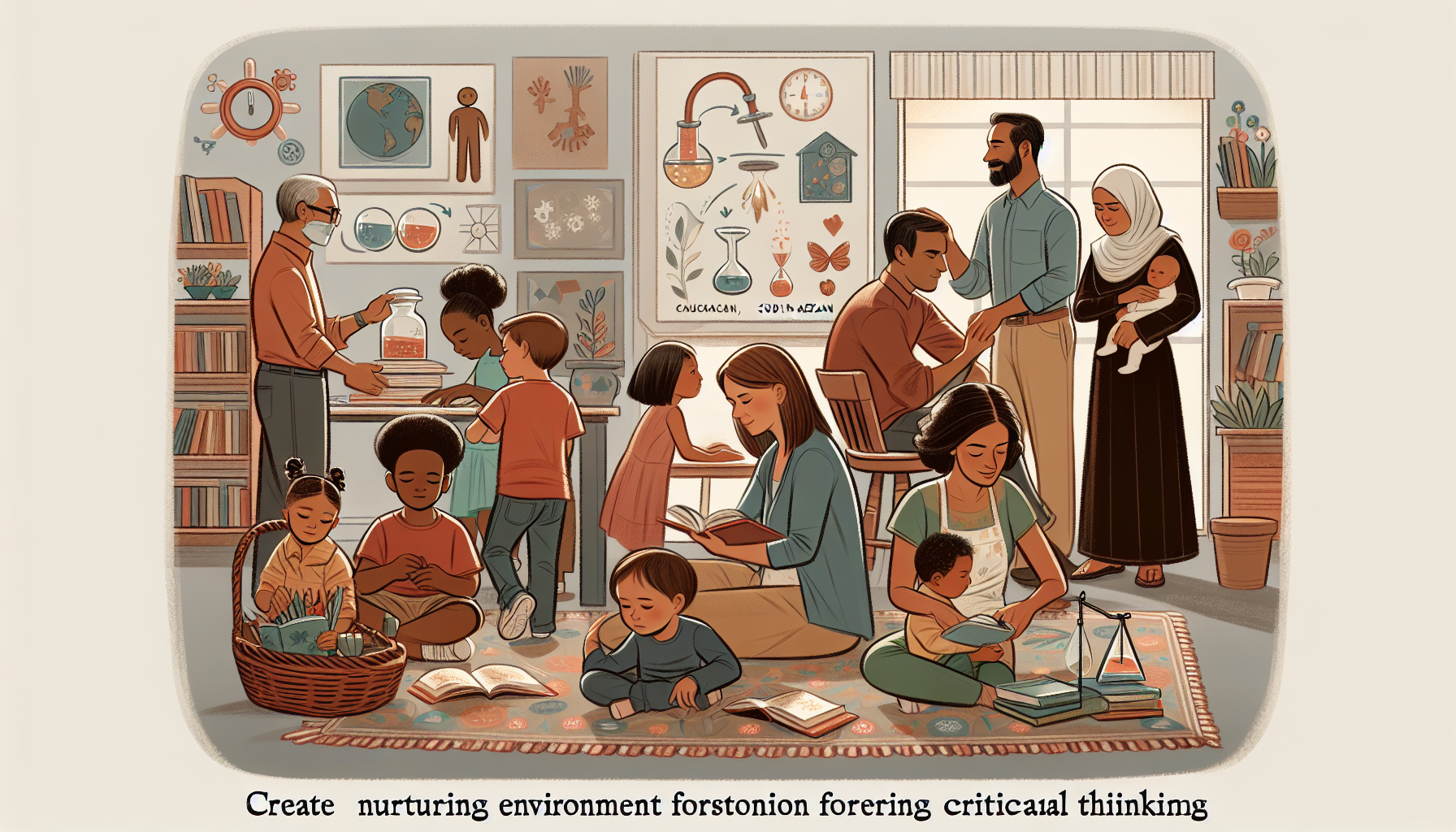Encouraging Children to Think Critically
In a rapidly changing world, one of the most valuable skills we can nurture in our children is the ability to think critically. Teaching critical thinking to children not only helps them solve problems more efficiently but also fosters independence and self-confidence. As parents and future parents, understanding how to develop these skills in our children is crucial for their overall development and success.
Main Points
Critical thinking is an essential skill that enables children to analyze information, evaluate different perspectives, and make informed decisions. According to cognitive-behavioral therapy (CBT), which emphasizes the link between thoughts, feelings, and behaviors, fostering critical thinking can help children better understand and manage their emotions. This is because they learn to assess situations more objectively and respond thoughtfully rather than react impulsively.
Children have several psychological needs, such as the need for safety, autonomy, and self-expression. By addressing these needs, parents can create an environment that encourages critical thinking. For instance, when children feel safe, they are more likely to explore new ideas and ask questions. Providing them with opportunities to make choices enhances their sense of autonomy and encourages independent thinking.
Research supports the importance of teaching critical thinking to children. A study published in the Child Mind website found that children who engaged in activities requiring critical thinking skills showed improved academic performance and better problem-solving capabilities.
Practical Recommendations
- Encourage Curiosity: Foster an environment where questions are welcomed. When children ask questions, don’t just provide answers—guide them to explore possible solutions themselves.
- Model Critical Thinking: Demonstrate how you approach problems and make decisions. Share your thought process and show them how to weigh pros and cons.
- Provide Problem-Solving Opportunities: Give your children age-appropriate challenges that require them to think critically. This could be through puzzles, strategy games, or everyday situations where they can practice decision-making.
- Discuss Emotions: Help your children understand and articulate their feelings. Discussing emotions openly can enhance their ability to think critically about their responses and actions.
- Encourage Reflection: After completing a task or experiencing an event, ask your children to reflect on what they learned and how they might approach it differently next time.
Conclusion
Encouraging critical thinking in children is a vital aspect of modern parenting. It equips them with invaluable skills for navigating life’s challenges and enhances their problem-solving abilities. By creating a supportive environment where curiosity is nurtured and decision-making is encouraged, parents can significantly contribute to their children’s cognitive and emotional development. Embracing these parenting strategies not only benefits children but also strengthens the parent-child relationship, fostering a lifelong journey of learning and growth.

